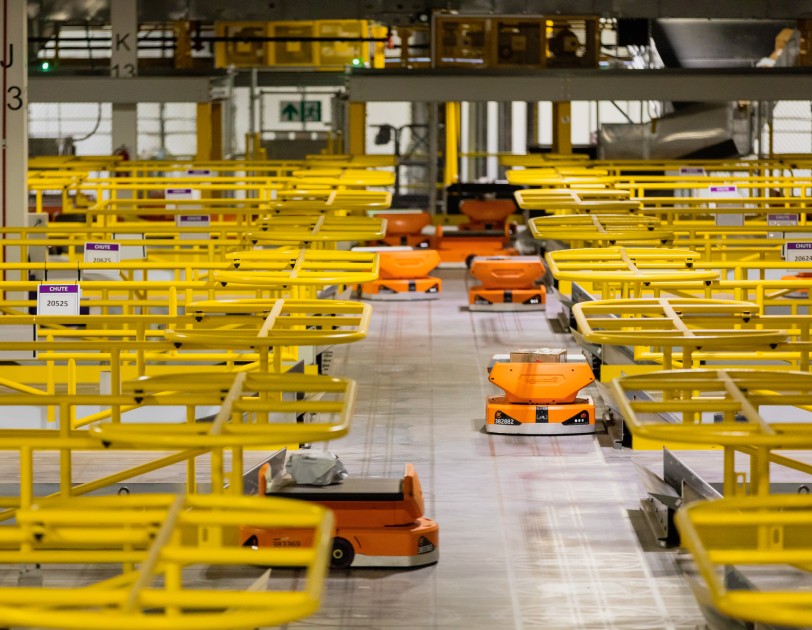No products in the cart.
E-commerce fulfillment costs are rising faster than revenue, Cargo Facts Consulting finds

In September 2019, Cargo Facts Consulting will publish a new report, the Global E-Commerce Logistics Outlook, to help companies craft their strategies towards a segment that has become increasingly important in logistics. This first in a series of articles leading up to the publication of the report gives insight into our evolving research.
E-commerce logistics is entering a new phase, where fulfillment costs are climbing faster than revenue growth. As a consequence, transportation service providers will be increasingly pushed to lower prices.
According to our detailed look at the logistics strategies of 12 major platforms and sellers — Alibaba, Amazon, Jd.com, Walmart, Shopify, eBay, Wish, as well as regional e-tailers such as Otto, Flip Kart, Jumia, MercadoLibre, and Rakuten – Cargo Facts Consulting has found that climbing fulfillment costs compared to revenue growth is both a sign of a shift in service offering, as well as a problem. Many platforms (Amazon, Walmart and JD, for example) have moved from two-day to overnight, same-day delivery, or even delivery within the hour. Companies have not recovered from their customers this additional cost. For example, Mercado Libre started subsidizing shipping in 2017 in order to provide free delivery to its customers. This has been hurting Mercado’s margins and led to a loss of $70 million in 2018.
Meanwhile, own-controlled logistics is seen as a competitive advantage for e-commerce companies. All of the above e-commerce platforms operate in-house logistics providers, with the exception of eBay, Shopify and Wish. While most run their own fulfillment centers, they tend to rely on third-party carriers for linehaul and last-mile services. Germany-based Otto is an exception with its own package company Hermes, as is JD.com, which also runs its own delivery company. Both Hermes and JD offer services to the general public.
To meet ever-heightening delivery expectations, large e-commerce platforms are shaping subcontractor networks. Sunday and late-evening delivery are becoming more prevalent around the world, and courier working times and delivery times are being driven by the arrival of trucks from e-commerce fulfillment centers. For example, DHL in Germany has delayed start times of delivery runs to accommodate trucks arriving from Amazon fulfillment centers.
Despite the delivery strain, logistics networks are being opened to third-party sellers. Where platforms host third-party sellers, generally the sellers can access the platform’s fulfillment networks. However, none of the big platforms have become serious competitors to the traditional 3PL giants like DHL or Kuehne & Nagel. Cross border, as well as domestic e-commerce fulfillment, is a fundamentally different business. Cainiao, owned by Alibaba, has the greatest potential to become a threat to the traditional 3PL business.
And that would be the next phase for e-commerce logistics.
The Cargo Facts Consulting Global E-Commerce Logistics Outlook will cover the development of both domestic and cross-border e-commerce and its effect on multiple segments, including air cargo and contract flying, express, postal, trucking, and last-mile delivery services. It will also take a detailed look at evolving fulfillment and logistics strategies of key global and regional e-commerce platforms, as well as at the relationships that are developing between different parties in the e-commerce value chain. The report discusses how companies are positioning themselves to benefit from year after year of double-digit e-commerce growth. Not all existing and emerging e-commerce logistics business opportunities are profitable or without risk. The report will provide insight into which prospects have the greatest potential. See www.cargofactsconsulting.com for details.
Frederic Horst is Managing Director of Cargo Facts Consulting. He can be contacted by clicking here.

















